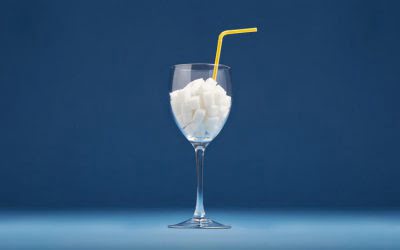If you’re having difficulty sticking to your goal or just want some extra guidance, consider reaching out for professional support. Feeling at your best physically can boost resilience and emotional strength, equipping you to weather challenges that trigger the desire to drink. Letting others know about your choice to stop drinking may help motivate you to stick with your decision. From month-long sobriety challenges to the https://thecoloradodigest.com/top-5-advantages-of-staying-in-a-sober-living-house/ Sober Curious movement, more and more people are taking a closer look at the role alcohol plays in their lives. By Buddy TBuddy T is a writer and founding member of the Online Al-Anon Outreach Committee with decades of experience writing about alcoholism. Because he is a member of a support group that stresses the importance of anonymity at the public level, he does not use his photograph or his real name on this website.
Healthy Things That Happen to Your Body When You Stop Drinking for 30 Days (or More)
Cognitive, emotional, and sleep disturbances can occur at even moderate levels of drinking. As one drinks more over time, these disturbances get worse and become more difficult to reverse. Alcohol withdrawal symptoms range from mild but annoying to severe and life-threatening. Your healthcare provider will recommend and encourage treatment for alcohol use disorder.
- After two weeks into quitting alcohol, you may start to lose weight, due to the removal of calories from alcoholic drinks.
- If your body is used to a certain amount of alcohol, you may feel certain effects when you stop.
- It’s true that some studies show potential benefits to your heart health when drinking lower levels of alcohol.
Stage 2: Moderate Withdrawal
Or if you’re just thinking about taking a break from alcohol, for your own reasons or as part of a challenge, you will be joining millions of others. If your liver has taken a hit from prolonged alcohol use, there are ways to give it — and the rest of your body — a break. Your liver has enzymes that work like special tools to help metabolize (break down) different toxins that enter your body, such as alcohol. Drinking—especially a fine wine or scotch habit—is an expensive undertaking.
Behavioral Treatment
A counselor can help someone prepare for life after withdrawal and provide support as they navigate quitting drinking. It’s typical for withdrawal symptoms to begin within hours to a day or two after you have your last drink. Symptoms are often at their worst around 24 Sober House to 72 hours after you stop drinking. There are several mild to moderate psychological and physical symptoms you might experience when you stop drinking. If you’re living with alcohol use disorder, treatment at a medical rehabilitation facility is your best option.
When you’re having a good time, you find it hard to stop, especially in the company of friends having the same amount. If you want to reduce your alcohol use and stop drinking, there is help and support for you. Behavioral interventions, medications, and social support can all play a role in your alcohol recovery.
Research shows people who have a supportive social network are more likely to remain alcohol-free after withdrawal. Those with a wider circle of support have a better chance of staying sober. For those with alcohol use disorder, withdrawal is just the first (but very important) step on a long journey to recovery.

This may be more pronounced if you often use alcohol as a way to manage existing sleep problems. Unfortunately, while alcohol may make it seem like you are falling asleep quicker, it can also lead to worse sleep quality. John C. Umhau, MD, MPH, CPE is board-certified in addiction medicine and preventative medicine. For over 20 years Dr. Umhau was a senior clinical investigator at the National Institute on Alcohol Abuse and Alcoholism of the National Institutes of Health (NIH). Understanding those reasons gives room for you to learn how to drink less.
Are there any health benefits to drinking alcohol?
People experiencing mild to moderate alcohol withdrawal symptoms often receive outpatient care—meaning there is no extended time spent in a hospital or facility. It’s recommended, however, that they have someone stay with them who can help during recovery. Even moderate drinkers can see benefits from quitting alcohol, as it can help support a healthy lifestyle, says McMahon. Within just a month of not drinking, your body can begin to reap the benefits. Your liver can start to heal, your risks of heart disease and cancer go down, and you may begin to sleep better. Alcohol withdrawal (alcohol withdrawal syndrome) is a range of symptoms that can happen if you stop or significantly reduce alcohol intake after long-term use.